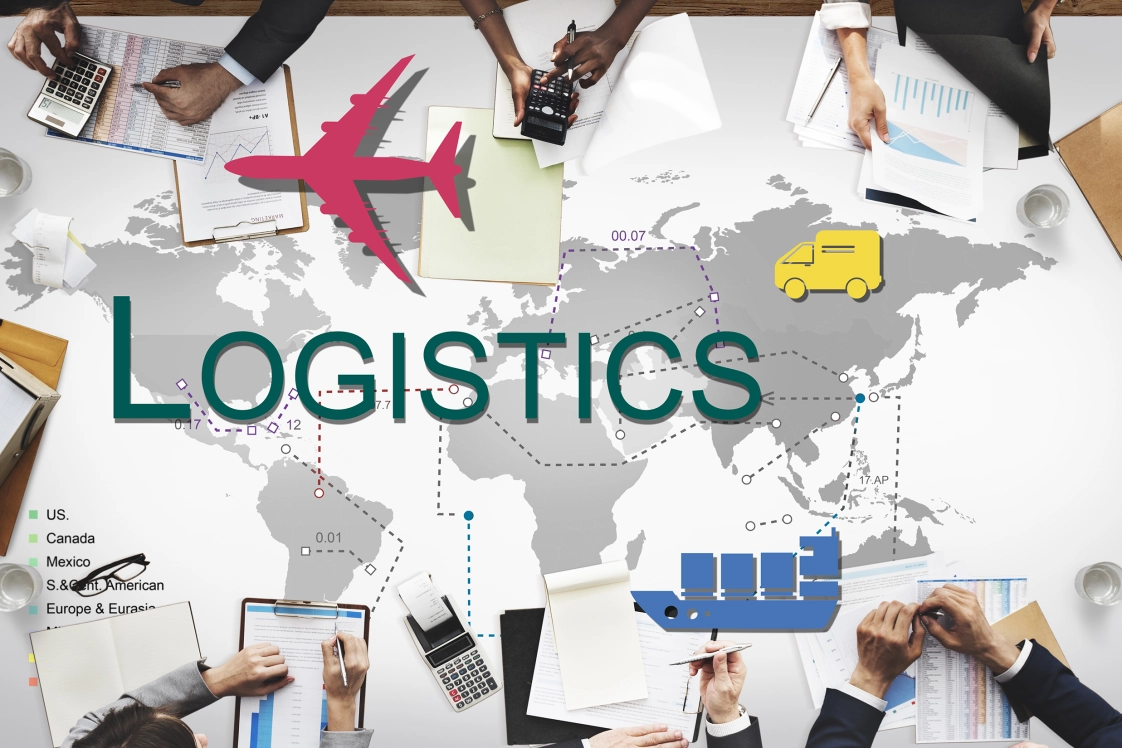ESG Regulations and Legislation to Know
This year, ESG heats up as retailers are required to take action. In this blog, we’ll cover the major ESG laws coming into force this year that retailers need to prepare for and keep on their radar. First, let’s look at macrotrends that are shaping the impact of ESG.
Environmental, Social, and Governance (ESG) continues to be a hot topic in 2024, as major legislation around the world will go into effect or be voted on by global entities.
For retailers, ESG scores— a set of standards used to measure an organization’s performance and impact on the environment and society — impacts sustainability, economical, ethical, social and customer experience.
It’s a topic that affects every retailer and its supply chain.
Radial, a bpostgroup company, is deeply committed to sustainability and environmental protection; our number one priority is to reduce our environmental footprint. Through our environmental initiatives, we are working to limit:
- Carbon emissions
- Energy consumption
- Waste volume
This year, ESG heats up as retailers are required to take action.
In this article, we’ll cover the major ESG laws coming into force this year that retailers need to prepare for and keep on their radar.
But first, let’s look at macro trends that are shaping the impact of ESG.
Macro Trends Shaping ESG
- ESG is a global priority for investors. According to the deVere Group, 56% of investors plan to increase their investment in ESG this year. This appears to be a major shift in investor mindset, as these investments are now seen to be financially sound and no longer just morally influenced. “Numerous studies suggest that companies with high ESG scores tend to outperform the market, and Reuters has reported that ESG positive funds outperformed globally over 5 years,” deVEre Group founder Nigel Green was quoted in the report. Investors are expected to continue to see ESG investments as a positive force that just makes good business sense. ESG is considered a crucial element of risk assessment, which means businesses wanting to attract investors will need to demonstrate their commitment to ESG measures and compliance.
- ESG will overhaul business models. The new ESG regulations provide retailers the opportunity to not only reconsider compliance and risk management but also to change their business models. ESG concerns about biodiversity, nature, sustainability, and its effect on society are all lenses that companies are using to rethink how they do business in the world. For retailers and the supply chain, this includes product sourcing, emissions, packaging, order fulfillment, transportation, and last-mile delivery.
- ESG impacts everyone. Many ESG regulations are anchored in the European Union; however, they affect any company doing business in the EU that meets the EU specifications. Retailers that are not doing business in the EU should still be mindful of the policies taking shape around the world as other governments, including the United States and its States, often develop similar legislation following EU adoption.
With this in mind, here are the top ESG regulations and legislation that retailers need to stay on top of in 2024
Top ESG Regulations
- January 1, 2024 | EU Corporate Sustainability Reporting Directive
The CSRD serves to standardize non-financial reporting. It came into effect on January 1, 2024. This ruling requires all large companies and listed small and medium-sized enterprises that operate in the EU to report regularly on their climate impact. Affected companies must begin reporting in 2025 for fiscal year 2024. Reporting includes disclosing risks from environmental and social factors that may impact their performance.
The ruling applies to EU companies that meet two of the following criteria: either US$40 million in net revenue, US$20 million in assets, 250 or more employees. Non-EU companies must have substantial activity in the EU as well as a physical presence. - January 1, 2024 | German Supply Chain Due Diligence Act
This ruling requires executives to report on supply chain performance. Previously, this ruling applied only to businesses in Germany with more than 3,000 employees, or German-registered branches of foreign companies with more than 3,000 employees. As of the beginning of this year, this ruling now applies to businesses with 1,000 employees. - February 2024 | EU Nature Restoration Law
This biodiversity law is expected to have final EU approval in February. It is the product of the COP15 meeting in December 2022 where 180 nations signed an international treaty supporting biodiversity. The ruling will require the parties to mandate nature-related reporting for large companies by 2030, in an effort to tie ecological impact to economic activity. Major Fortune 100 businesses have backed this law.
Under the ruling, companies will be held responsible for all nature-impact from supply chain to source. The law also sets an EU goal to have nature restoration practices in place on not less than 20% of EU land and sea by 2030, and on all relevant ecosystems by 2050. - April 2024 | US SEC Climate Disclosure
The United States Security Exchange Committee (SEC) is expected to finalize this ruling in April, which will require companies to report on greenhouse gas emissions and other climate metrics. The goal is to enhance and standardize corporate disclosures related to climate issues and to prevent greenwashing. It will require public companies to disclose change risks in operations when they file registration statements and annual reports.
This ruling applies to all public companies that file SEC US 10-K, as well as foreign private companies that file SEC 20-F. - May 2024 | UK FCA Sustainability Disclosure Requirements
The United Kingdom’s Financial Conduct Authority (FCA) published this ruling in November 2023, which requires new sustainability disclosures and investment labels from FCA regulated firms. The goal is to improve trust and transparency in the market for sustainable investment products, including anti-greenwashing rules to help improve consumer trust in sustainability information. - June 2024 | EU Sustainable Finance Disclosure Regulation
The EU has been creating a sustainable finance framework since 2018 to help to flow private funds to investments that meet European Green Deal objectives. The SFDR came into effect on Jan. 1, 2023, and requires financial market participants and financial advisers to report on new ESG disclosures, including financed emissions, by June of this year.
This ruling applies to financial market participants that are active in the EU. - End of Year 2024 | California Climate Corporate Data Accountability Act
California’s SB253 and SB261 rulings require large companies to establish processes for auditing their 2025 emissions prior to 2026 reporting. Companies impacted include those with more than US$1 billion in global revenue to report scope 1, 2, and 3 emissions if they do business in California. It is estimated that more than 6,000 companies will be subject to this ruling. Other states are expected to follow suit with similar legislation. - End of Year 2024 | UN Global Plastics Treaty
The UN Global Plastics Treaty is expected to come into force at the end of the year, with key meetings to be held in April and November. The world’s first agreement to address and end plastic pollution will have wide-sweeping effects as it will bind all 180 signatory governments and businesses by the same rules covering plastic production, reuse, recycling, and disposal. - December 2024 | EU Deforestation Law
Under this ruling, companies will be required to verify that products marketed in the EU do not include components originating from recently deforested regions. This EU law intends to curtail global deforestation and the loss of biodiversity. Any commodities or products associated with deforestation such as coffee, cacao, palm oil, soy, or cattle are prohibited from EU sales or export, unless they meet specified requirements. Producers will need to provide evidence that their supply chain is entirely free of deforestation. This law significantly impacts Latin American businesses, which are the largest exporters of agricultural products to the EU.
ESG as an opportunity
Retailers that see ESG as an opportunity to change their business to have a more positive — and more crucially, a less harmful impact — on the environment are expected to benefit in revenue, investment, and brand reputation.
In a recent study, we found that two out of five retail executives report that they are prioritizing sustainability in the following ways:
- 53% eco friendly packaging
- 49% minimal packaging for reduced waste
- 46% longer shipping windows
- 45% more sustainable transportation methods
- Further, 51% of consumers reported they would pay slightly higher shipping fees if they knew it contributed to more environmentally friendly shipping practices.
- Consumers want to see brands prioritizing sustainability in the following ways:
- 57% minimal packaging for reduced waste
- 54% eco friendly packaging
- 35% option to group shipments
- 34% more sustainable transportation methods
A Positive Impact
ESG is an opportunity to enhance your brand reputation, align with key climate priorities, and make a positive impact in the world.
Retailers that take the lead and innovate on ESG matters will gain a competitive advantage. Now is the time to prepare for compliance and to discuss ESG with your supply chain ecosystem.

